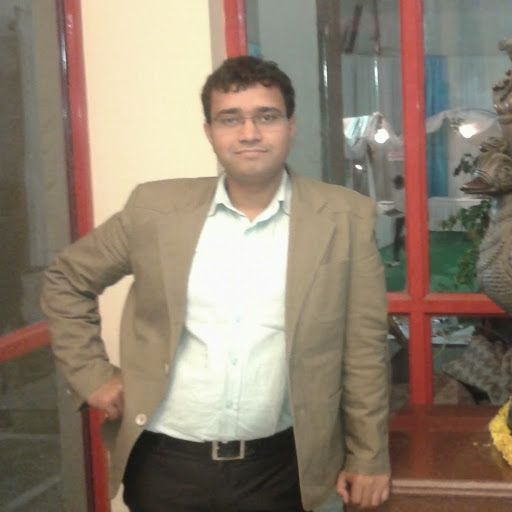Dear Colleague, Very interesting and very important question raised by you to this forum.
Why don't HR professionals become CEOs and COOs?
As you will agree, HR professionals are moving faster nowadays in their careers and getting closer to the Board of Directors level in many companies.
Sharing a few known examples for the purpose of elaborating on the subject.
1. There are good examples, such as the past Chairman of Neyveli Lignite Corporation (NLC) in Tamil Nadu, who was previously the HR Head and then became the Chairman of NLC Neyveli.
2. Leena Nair, the Chief Human Resources Officer (CHRO) of Unilever, was recently named the global CEO of the French fashion group Chanel. Nair, who has spent about three decades at the consumer goods company and is also a member of the Unilever Leadership Executive, will be based in London. Nair, 52, has the rare distinction of being the first female, first Asian, and the youngest-ever CHRO of London-based Unilever, which is a household name in the beauty & personal care as well as foods & refreshment segments.
There are many other examples where HR professionals have turned into COOs or CEOs in our country itself. To cut a long story short, an HR professional can become the CEO of a company if he/she is open to learning the business and looking at things with broader perspectives. After all, as HR professionals commonly say, "Human resources isn't a thing we do; it's the thing that runs the business."
In fact, HR is the most suitable for COO or CEO roles, provided they pick up the technical and financial aspects of the business, as they are already experts in the people side of the business, which is the most difficult part of any global or domestic company. Any HR professional can become a COO or CEO once they are ready with their competencies relating to:
1. The ability to build teamwork across locations and countries
2. The ability to think strategically
3. The ability to communicate and set expectations in the minds of key functions
4. The ability to motivate strong performances
5. The ability to develop required leaders for current and future business
6. Risk-taking ability with clear calculations
7. Understanding the business environment faster than others
8. Leading the brand and products as being the first to the customer
9. Innovating and keeping new logics for business
10. Keeping all stakeholders delighted with futuristic service and products and staying ahead of competitors
In short, HR professionals can very well become COOs or CEOs, provided the required competencies are present and the talent is ready to experiment with the business with balanced profit in a sustained manner, which is a very comfortable role for any HR.
From India, Chennai
Why don't HR professionals become CEOs and COOs?
As you will agree, HR professionals are moving faster nowadays in their careers and getting closer to the Board of Directors level in many companies.
Sharing a few known examples for the purpose of elaborating on the subject.
1. There are good examples, such as the past Chairman of Neyveli Lignite Corporation (NLC) in Tamil Nadu, who was previously the HR Head and then became the Chairman of NLC Neyveli.
2. Leena Nair, the Chief Human Resources Officer (CHRO) of Unilever, was recently named the global CEO of the French fashion group Chanel. Nair, who has spent about three decades at the consumer goods company and is also a member of the Unilever Leadership Executive, will be based in London. Nair, 52, has the rare distinction of being the first female, first Asian, and the youngest-ever CHRO of London-based Unilever, which is a household name in the beauty & personal care as well as foods & refreshment segments.
There are many other examples where HR professionals have turned into COOs or CEOs in our country itself. To cut a long story short, an HR professional can become the CEO of a company if he/she is open to learning the business and looking at things with broader perspectives. After all, as HR professionals commonly say, "Human resources isn't a thing we do; it's the thing that runs the business."
In fact, HR is the most suitable for COO or CEO roles, provided they pick up the technical and financial aspects of the business, as they are already experts in the people side of the business, which is the most difficult part of any global or domestic company. Any HR professional can become a COO or CEO once they are ready with their competencies relating to:
1. The ability to build teamwork across locations and countries
2. The ability to think strategically
3. The ability to communicate and set expectations in the minds of key functions
4. The ability to motivate strong performances
5. The ability to develop required leaders for current and future business
6. Risk-taking ability with clear calculations
7. Understanding the business environment faster than others
8. Leading the brand and products as being the first to the customer
9. Innovating and keeping new logics for business
10. Keeping all stakeholders delighted with futuristic service and products and staying ahead of competitors
In short, HR professionals can very well become COOs or CEOs, provided the required competencies are present and the talent is ready to experiment with the business with balanced profit in a sustained manner, which is a very comfortable role for any HR.
From India, Chennai
Example of an HR Head Becoming a CEO/COO
One more example of an HR Head becoming a CEO/COO is at Dr. Reddy's Laboratories. Mr. Soumen Chakraborty joined as the Head of HR and, in due course of time, he became the Head of Finance, Operations, etc.
HR Heads as Business Partners
HR Heads aim to become business partners and participate in every aspect of the business to eventually reach the top position.
From India, Delhi
One more example of an HR Head becoming a CEO/COO is at Dr. Reddy's Laboratories. Mr. Soumen Chakraborty joined as the Head of HR and, in due course of time, he became the Head of Finance, Operations, etc.
HR Heads as Business Partners
HR Heads aim to become business partners and participate in every aspect of the business to eventually reach the top position.
From India, Delhi
The Role of HR in Organizations
HR is one of the specialized roles in organizations. Unfortunately, like accountants, they often focus inwardly on their job, their role, and their department. They don't look beyond their immediate responsibilities.
The Emergence of HR Business Partner
Precisely for this reason, a new term has been coined: HR Business Partner. This role enables HR to look outwardly, involve themselves in policy formulation, focus on the business, evaluate finances, and show interest in technical matters.
The day is not far off when more HR professionals become CEOs or COOs!
From India, Bengaluru
HR is one of the specialized roles in organizations. Unfortunately, like accountants, they often focus inwardly on their job, their role, and their department. They don't look beyond their immediate responsibilities.
The Emergence of HR Business Partner
Precisely for this reason, a new term has been coined: HR Business Partner. This role enables HR to look outwardly, involve themselves in policy formulation, focus on the business, evaluate finances, and show interest in technical matters.
The day is not far off when more HR professionals become CEOs or COOs!
From India, Bengaluru
The Evolving Role of HRM
Gone are the days when personnel management was treated as a staff function and cast aside to the sidelines. Now, with HRM becoming a strategic HR function, the traditional divide into line and staff functions has become obsolete. Like other areas of work, HR also requires specialized knowledge and experience, so it is not possible for every person to excel in the HR profession. HR managers have an overall vision of the organization and are best suited to be the CEOs of their respective companies.
From India, Mumbai
Gone are the days when personnel management was treated as a staff function and cast aside to the sidelines. Now, with HRM becoming a strategic HR function, the traditional divide into line and staff functions has become obsolete. Like other areas of work, HR also requires specialized knowledge and experience, so it is not possible for every person to excel in the HR profession. HR managers have an overall vision of the organization and are best suited to be the CEOs of their respective companies.
From India, Mumbai
Transitioning from HR to Executive Roles
As many of our friends have mentioned with proven examples, many HR professionals have become COOs or CEOs of organizations. Precisely, HR professionals understand the business well and have a 360-degree view of business operations.
HR professionals can transition to roles such as COO or CEO, and this transition depends on the individual's interest in learning business acumen. They should also possess knowledge and skills in finance modules to effectively contribute as stakeholders.
From India, Bengaluru
As many of our friends have mentioned with proven examples, many HR professionals have become COOs or CEOs of organizations. Precisely, HR professionals understand the business well and have a 360-degree view of business operations.
HR professionals can transition to roles such as COO or CEO, and this transition depends on the individual's interest in learning business acumen. They should also possess knowledge and skills in finance modules to effectively contribute as stakeholders.
From India, Bengaluru
Hey, this is not true that HR professionals cannot be CEOs, COOs, or any other role. As Drsivaglobalhr mentioned above, we have many examples where HR professionals have turned into Chairman, COO, and CEO.
In simpler words, it is nowhere written that HR professionals can’t step into other roles.
Truth be told, it completely depends on an individual how they want to grow professionally. At the same time, companies also play a huge role here! Employers and management should give opportunities to HR managers to get out of their zone and try other roles, especially people who have that zeal in them.
As Drsivaglobalhr already discussed, HR professionals have every required skill and talent to be CEOs and COOs.
If you are an HR expert who wants to become a CEO or COO someday, keep upskilling until you become one!
Hope this answer helps you!
From India, Noida
In simpler words, it is nowhere written that HR professionals can’t step into other roles.
Truth be told, it completely depends on an individual how they want to grow professionally. At the same time, companies also play a huge role here! Employers and management should give opportunities to HR managers to get out of their zone and try other roles, especially people who have that zeal in them.
As Drsivaglobalhr already discussed, HR professionals have every required skill and talent to be CEOs and COOs.
If you are an HR expert who wants to become a CEO or COO someday, keep upskilling until you become one!
Hope this answer helps you!
From India, Noida
I firmly believe that HR can drive or bring back the animal spirit of the corporation. However, along with human skills, HR needs to excel in operational matters. Just referring to the recent article published in the Times of India (ToI), 60% of leaders with operational experience become CEOs; surprisingly, no HR professionals mark their presence on the list.
Kindly refer to the attached article.
Happy readings!
Regards, Amol Nakve
From India, Mumbai
Kindly refer to the attached article.
Happy readings!
Regards, Amol Nakve
From India, Mumbai
It is not conventional to have just ADMIN or HR roles today; it is about performance or Business HR, which is linked with all functional areas in performance appraisals.
The Role of CHROs in Leadership
The CHRO, seen as the go-to expert on people and talent, might be the best choice when selecting a new president or CEO for your company, in my view, and research supports this. According to a recent study by Dave Ulrich, a professor at the University of Michigan's Ross School of Business, and Ellie Filler, a senior client partner at the executive recruiting firm Korn Ferry, Ulrich and Filler found that at top companies, CHROs are not only among the top three highest-paid professions, just behind CEOs and COOs, but they also exhibit leadership qualities that significantly overlap with their CEOs. As answered by other experts, many HR professionals have now become CEOs.
Examples of HR Professionals Becoming CEOs
Internationally, some examples include:
1. Lisa M Weber, President MetLife 2004-10
2. Mary Barra, CEO General Motors from 2014 to date
3. Nigel Travis, CEO Dunkin Brand
4. Anne M Mucahy, CEO Xerox
5. Bernard Fontana, CEO Framatone
All Business HR professionals have abundant chances of becoming CEOs. BUSINESS MEANS PEOPLE!!
From India, Tiruchirappalli
The Role of CHROs in Leadership
The CHRO, seen as the go-to expert on people and talent, might be the best choice when selecting a new president or CEO for your company, in my view, and research supports this. According to a recent study by Dave Ulrich, a professor at the University of Michigan's Ross School of Business, and Ellie Filler, a senior client partner at the executive recruiting firm Korn Ferry, Ulrich and Filler found that at top companies, CHROs are not only among the top three highest-paid professions, just behind CEOs and COOs, but they also exhibit leadership qualities that significantly overlap with their CEOs. As answered by other experts, many HR professionals have now become CEOs.
Examples of HR Professionals Becoming CEOs
Internationally, some examples include:
1. Lisa M Weber, President MetLife 2004-10
2. Mary Barra, CEO General Motors from 2014 to date
3. Nigel Travis, CEO Dunkin Brand
4. Anne M Mucahy, CEO Xerox
5. Bernard Fontana, CEO Framatone
All Business HR professionals have abundant chances of becoming CEOs. BUSINESS MEANS PEOPLE!!
From India, Tiruchirappalli
CiteHR is an AI-augmented HR knowledge and collaboration platform, enabling HR professionals to solve real-world challenges, validate decisions, and stay ahead through collective intelligence and machine-enhanced guidance. Join Our Platform.





 321
321


